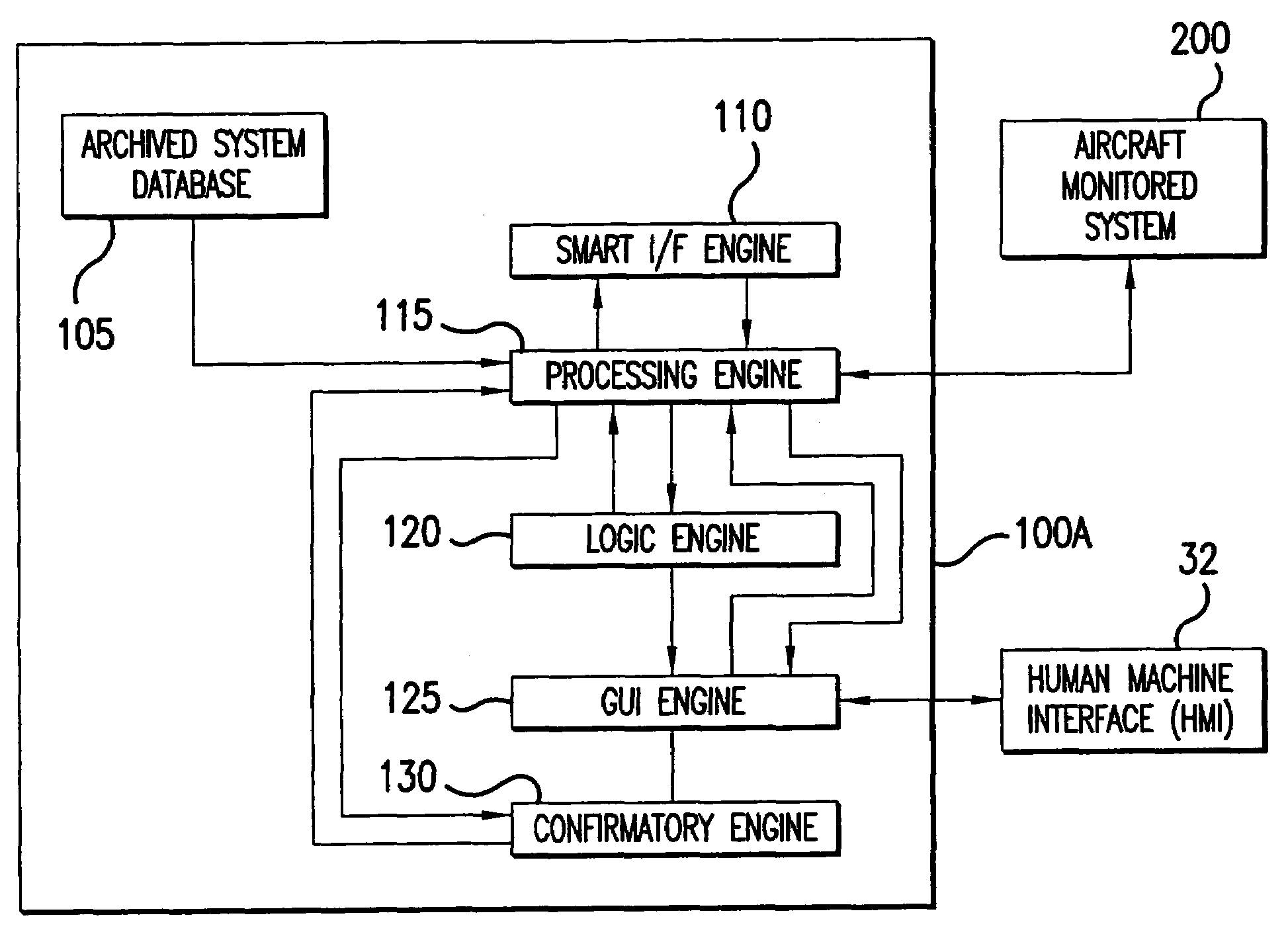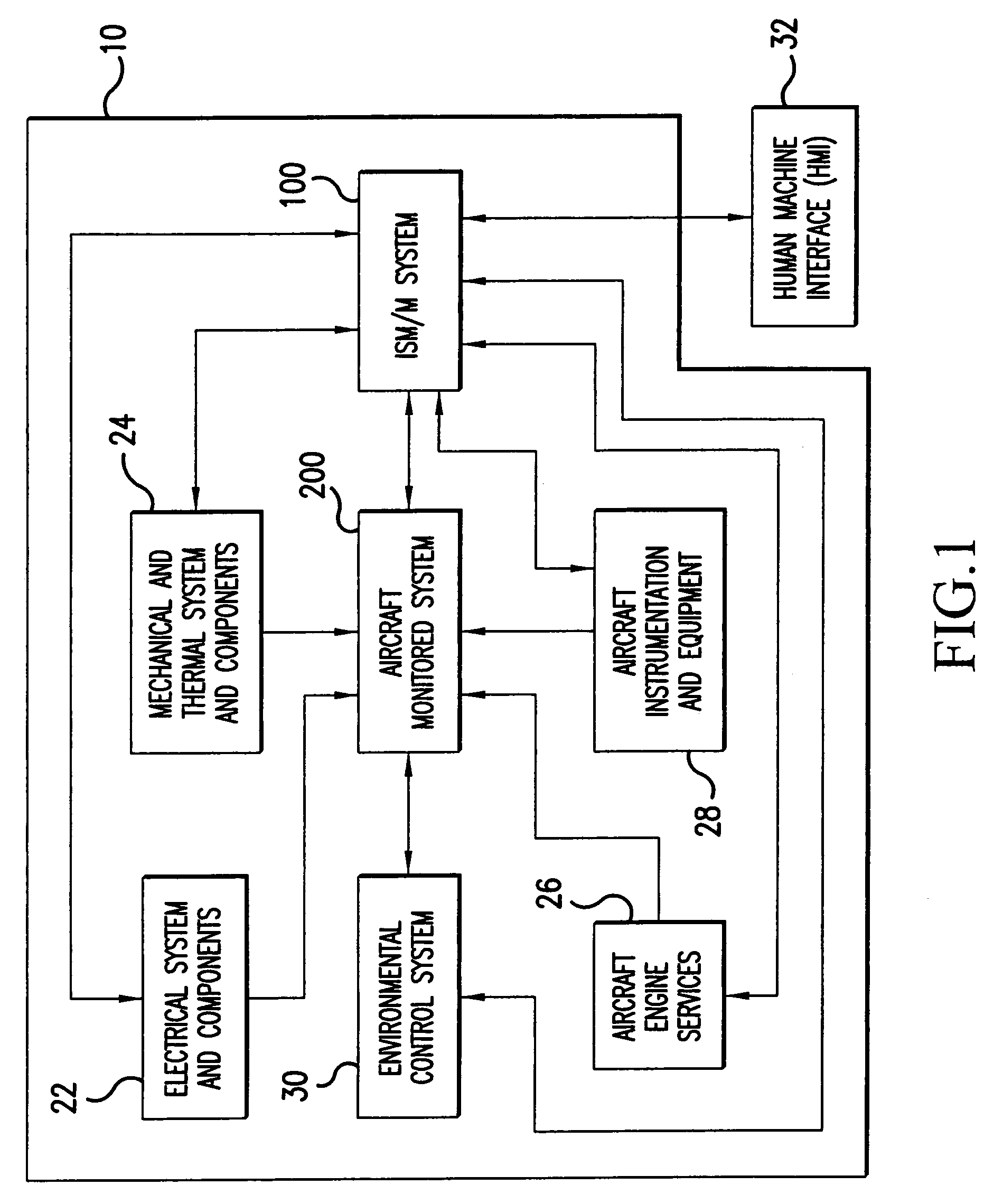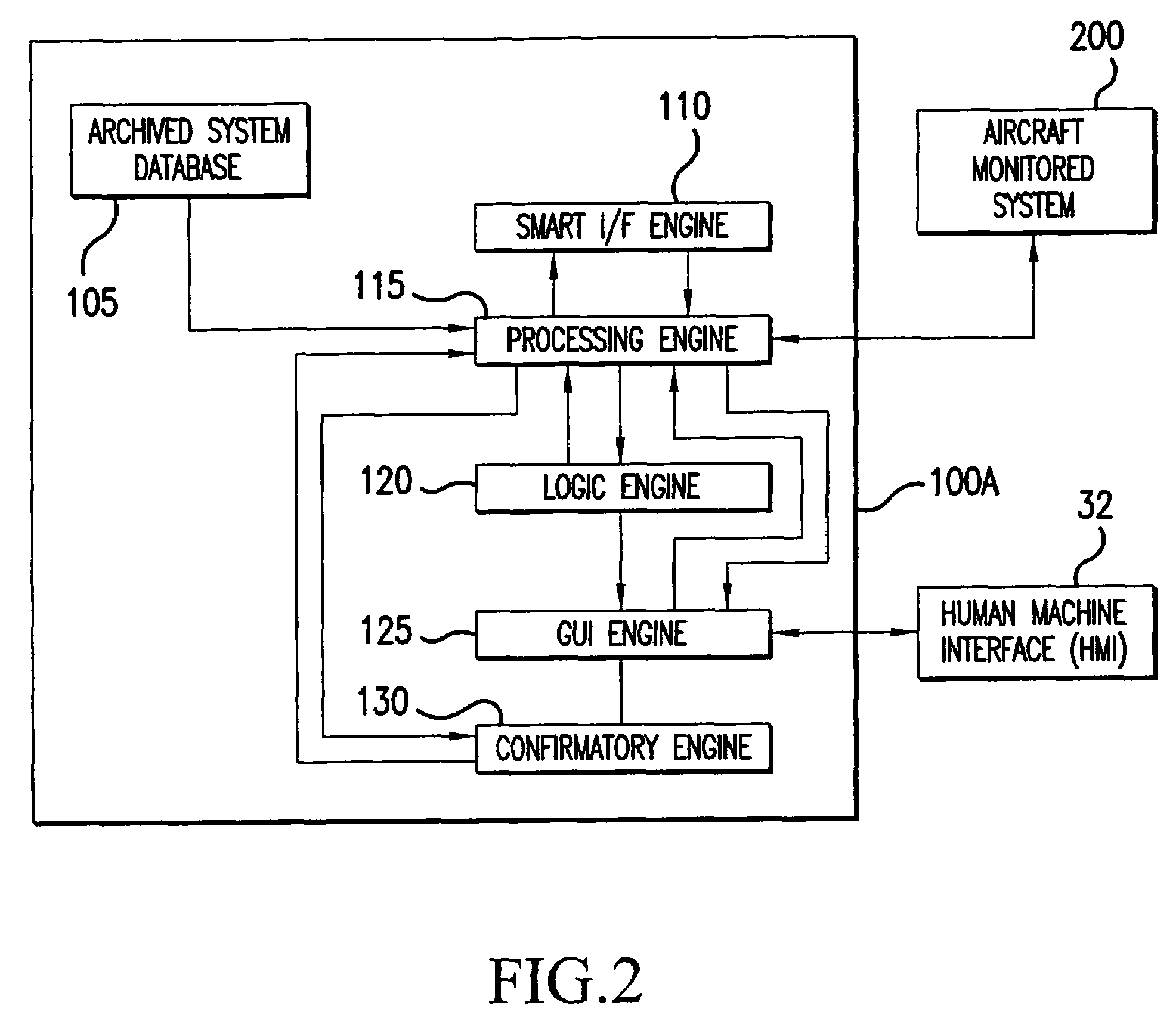Method and apparatus for system monitoring and maintenance
a monitoring and maintenance system and system technology, applied in the field of diagnostics and maintenance of complex systems, can solve the problems of ambiguous faults, limit the effectiveness of such techniques, and pose significant challenges to monitoring and maintenance systems, and achieve the effect of simulation of system performan
- Summary
- Abstract
- Description
- Claims
- Application Information
AI Technical Summary
Benefits of technology
Problems solved by technology
Method used
Image
Examples
Embodiment Construction
[0033]Aspects of the invention are more specifically set forth in the accompanying description with reference to the appended figures. Although aspects of the present invention are described and illustrated in the context of a vehicle environmental control system (ECS), it should be recognized that principles of the present invention are not limited to such an environment. FIG. 1 is a block diagram of a typical aircraft system 10 containing an intelligent systems maintenance / monitor (ISM / M) system 100 according to an embodiment of the present invention. Aircraft system 10 illustrated in FIG. 1 includes the following components: electrical system and components 22; mechanical and thermal system and components 24; aircraft engine services 26; aircraft instrumentation and equipment 28; environmental control system 30; aircraft monitored system 200; and ISM / M system 100. A human machine interface (HMI) 32 is provided for input / output of information and commands to / from the ISM / M system ...
PUM
 Login to View More
Login to View More Abstract
Description
Claims
Application Information
 Login to View More
Login to View More - R&D
- Intellectual Property
- Life Sciences
- Materials
- Tech Scout
- Unparalleled Data Quality
- Higher Quality Content
- 60% Fewer Hallucinations
Browse by: Latest US Patents, China's latest patents, Technical Efficacy Thesaurus, Application Domain, Technology Topic, Popular Technical Reports.
© 2025 PatSnap. All rights reserved.Legal|Privacy policy|Modern Slavery Act Transparency Statement|Sitemap|About US| Contact US: help@patsnap.com



